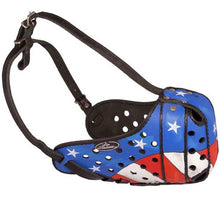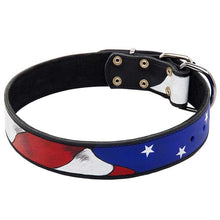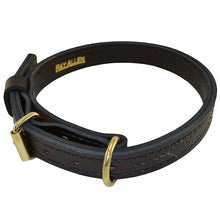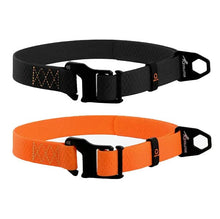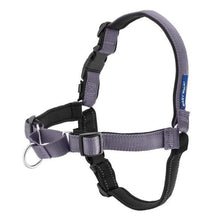How To Help An Old Dog Navigate Aging

It’s a privilege to care for an aging dog. When they reach their senior years, their needs begin to change but with some extra time and attention, you can help your dog navigate this season of their life.
Some ways you can help your old dog age gracefully include:
Feed the Right Diet
Just like people, the metabolism in old dogs begins to change and most often, slows down. They may not eat as much as they once did or their calories may need to be reduced to avoid weight gain. They may no longer be able to tolerate the food and treats they once loved.
However, this varies from dog to dog. If there are no issues, there is no reason for pets to go on a specific ‘senior diet.’ According to the Cummings School Veterinary Medical Center, there is no legal definition for ‘senior’ or ‘geriatric’ foods, or for diets marketed as senior diets. Manufactures only need to follow the same legal guidelines as created for all food formulations.
So, if your senior dog doesn’t have any health problems and isn’t gaining or losing weight, they still require high quality protein in the right amounts to maintain muscle mass, strength, and energy. If they’re healthy, fit, and already eating a nutritionally balanced diet, there’s no reason to change foods.
However, if your dog suffers from obesity, diabetes, heart disease, kidney disease, digestive issues, arthritis, cancer, or other health problems, your vet may be able to recommend a diet that will help manage their disease or slow down its progression.

Control the Temperature of their Environment
Due to their metabolic changes, old dogs are often more sensitive to temperature changes or extremes. They may no longer be able to keep as warm as they once did and can’t tolerate heat as well as they once were able to.
To prevent heat stroke and dehydration, it’s important not to leave old dogs out in the heat and monitor them while they are outside in warm temperatures. Conversely, since they get cold easier, they should not be left unattended outdoors in cold weather. Old dogs may appreciate a jacket or sweater or even booties to help keep them warm, depending on the climate they live in.

Modify their Exercise
The ability for old dogs to handle exercise depends greatly on their physical condition. Some older dogs suffering from reduced heart and lung function and hip, back, and joint disease simply can’t exercise as hard as they once did.
To help keep your senior active, try low impact exercise, walks rather than runs, games of catch rather than fetch, and try buying toys that engage their mind but don’t go crazy bouncing across the yard or slippery floors indoors, which can lead to injuries.
By modifying your dog’s activity, you can help keep your pup moving without stressing their joints or causing them to become over exerted.
Recognize the Signs of Doggy Dementia Early
Age related cognitive decline can happen to canines similar to how it happens in people. If your dog begins to suffer from the symptoms of dog dementia, it is important to get your pet a physical to rule out other health problems which can mimic the problem.
68% of old dog owners will recognize at least one of these symptoms of cognitive decline in their pet:
- Confusion
- Disorientation
- Getting lost in their own home or yard
- Not recognizing familiar people or other pets
- Changes in sleep cycles/up all night/sleep all day
- Decreased interest in play or interaction
- Inability to rest or relax
- Obsessive behaviors, such as constant licking or pacing
- Stress or anxiety when doing the things they once loved, like going on car ride
- No longer signaling they need to go out or having accidents indoors

There are medications, supplements, and special diets that can help improve symptoms and slow the progression of cognitive decline. These treatments work best when implemented right away so if your dog starts showing symptoms, its best to see your vet as soon as you can.
Stimulate their Mind
Just like people, dogs need to use their mind. To keep them happy and mentally stimulated, continue to provide them with interesting experiences as long as they don’t get stressed out by them. Some ideas to keep aging dogs engaged include:
- Teaching new tricks
- Food puzzles
- Scent games
- Allowing them to sniff on walks
- New interactive toys
- Continue doing things they love
- Visiting friends, active social life
Keep them Limber
Old dogs tend to get stiff, which can lead to joint discomfort. Exercise can help with this but so can physical therapy, chiropractic care, acupuncture, and cold laser therapy.
A canine physical therapist or chiropractor can help keep your old dog active and can evaluate physical problems that may be causing your dog pain. Their equipment can also provide your dog with mental stimulation and engagement while cold laser and acupuncture can help reduce pain and inflammation to help keep them moving.
Keep their Environment Safe
As your dog gets older, you may have to make changes to their environment to keep them safe. As they lose physical strength, their visual perception dims, and their hearing is not acute as it once was, they need help to adjust. Some ideas include:
- Stairs to help them get on the bed or furniture
- Ramp for the car
- Scatter rugs on hard floors to keep them from slipping
- Drying wet paws before walking on slippery floors
- Keeping food and water dishes within easy reach
- Pick up tripping hazards
- Using dog diapers or pads, if needed
- More bathroom breaks
- Nonslip mats for baths
- Multiple pet beds around the house to prevent pressure sores and aching joints

Talk to your Vet about Supplements
As dogs age, some therapeutic supplements can help reduce pain and keep their mind sharp. Along with adding some foods that are high in antioxidants and vitamins to their meals, such as eggs, spinach, broccoli, carrots, sardines, pumpkin, blueberries, and squash, these supplements may be beneficial:
- Omega 3’s to fight inflammation and protect heart health
- Bone broth to help joints
- Probiotics to maintain gut health
- Digestive enzymes to help them absorb nutrients from their food
Keep a Close Eye on Your Senior Dog
By watching over your aging dog carefully, keeping them well groomed, and providing regular vet visits, you can help prevent and identify age related health problems and give your pup the longest, happiest life possible.
Regular teeth cleanings, skin exams, frequent brushings, and doggy massages can go a long way to help you recognize the first signs of pain and illness on your dog. Flea, tick and heart worm prevention can also help keep your dog disease free.

Supplements and medication can also improve the quality of their life when they are suffering from disease or pain. When you feel your dog is reaching the end of their life, it’s a good idea to make a plan and talk to your vet about your options before a crisis happens.
We hope these tips are helpful and that you’ll share them with your friends.
You may also like: How To Prevent Joint Injuries In Your German Shepherd




